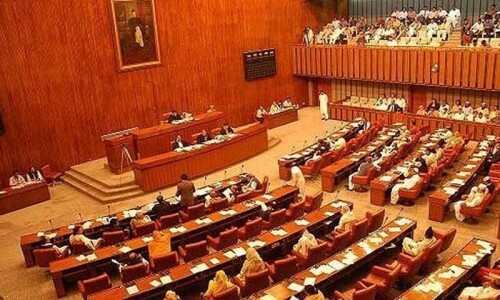KARACHI: Borrowing by the private sector has gone down by 86.3 per cent to Rs57.4 billion during the first half of the current fiscal year, from Rs419bn during the same period of last year.
Only the Islamic banks were able to extend loans to the private sector during the first half of the current fiscal year, reflecting an extremely poor performance by both the private sector and lenders.
Since the economy is under stress of low growth, trade and industry are not borrowing from banks, leaving the space open for banks to make an optimum investment in government’s papers and reap risk-free profits.
The latest data released by the State Bank reveals that even though more than six months of the current fiscal have passed, major conventional banks have been unable to extend loans to the private sector.
The balance sheet by major banks shows a net debt retirement of Rs34.7bn against a net lending of Rs452.5bn in the same period of last fiscal year.
The previous fiscal was not a productive year for the economy since economic growth rate was negative. The flow of liquidity fell drastically last year compared to the preceding year (FY22), but the current year is setting new record of low growth in private sector lending.
The second half of the previous fiscal proved the worst since total lending to the private sector at the end of FY23 was just Rs208.3bn, compared to the first half year’s lending of Rs419bn of the same year. Lending fell sharply in the second half of FY23.
It did not improve since the steep fall during the second half of FY23.
The first half of FY24 seems to be a continuity of that decline. But the Islamic banks managed to come out from the net debt retirement to Rs62.6bn during July- Jan 5, FY24. This was against a lending of Rs426bn in the same period of last fiscal year.
This contrast is enough to reflect the depressing state of the economy.
But even the branches of conventional banks offering Islamic banking also showed a marginal improvement. The net lending by them to the private sector in the first half of FY24 was Rs29.5bn. This was against the net debt retirement of Rs459bn by these branches in the same period of last fiscal year.
Experts see the private sector’s poor performance as a consequence of a high interest rate of 22 per cent, along with 29 per cent inflation. The two factors made it prohibitive for trade and industry to go for borrowing at a high cost.
Published in Dawn, January 23rd, 2024














































Dear visitor, the comments section is undergoing an overhaul and will return soon.